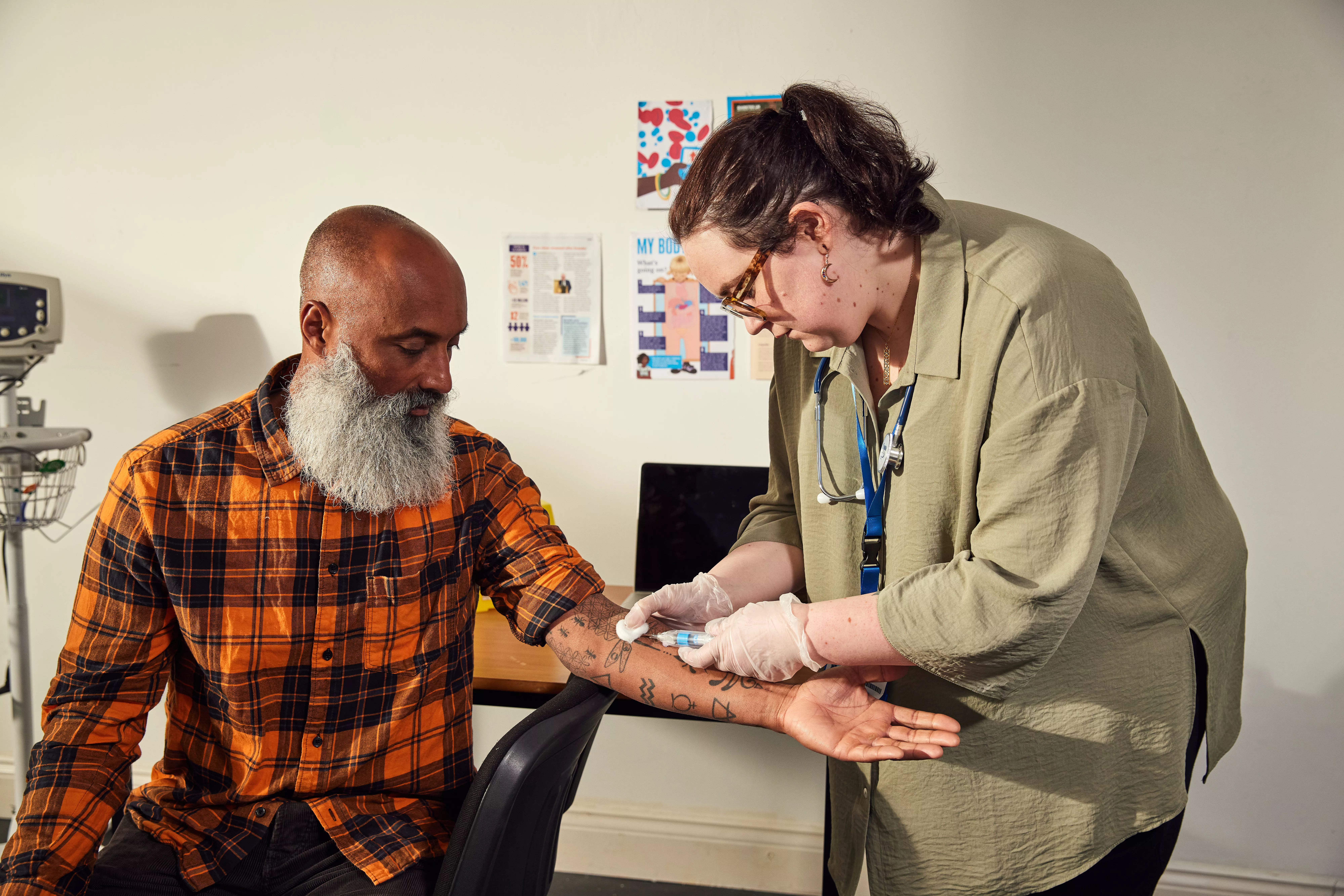
New diabetes type research funded by us has highlighted that not everyone with diabetes is diagnosed with the right type straight away. But the results show that a simple blood test could help to avoid this, by giving doctors extra information about the type of diabetes to help ensure everyone can start the right treatment as soon as possible.
When people are diagnosed with diabetes as adults it can be difficult to tell which type they have, as many symptoms of type 1 diabetes and type 2 diabetes can overlap. Some research suggests that in the initial development and diagnosis of type 1 diabetes, up to one in three adults are wrongly diagnosed with type 2 when they really have type 1, while one in six diagnosed with type 1 have another type altogether.
Being wrongly diagnosed with type 1 can mean someone starting insulin treatment when they don’t need it, leading to real difficulties managing blood sugar levels. And if someone with type 1 is incorrectly diagnosed and not given insulin, there can be serious consequences. This means that it’s really important to get the diabetes diagnosis right as soon as possible, so people can get the correct support and treatment.
A number of blood tests have been suggested to help doctors diagnose the type of diabetes. One of these looks for molecules in the blood, called autoantibodies. Autoantibodies are made by the immune system when it wrongly targets and destroys insulin-making cells in type 1 diabetes. Other types of diabetes aren’t caused by an immune attack, so testing for these autoantibodies soon after diagnosis could help pick out type 1 from other types of diabetes.
Targeting the type
Recent guidelines from the European Association for the Study of Diabetes and the American Diabetes Association recommend that autoantibody testing should be offered as routine for all adults newly diagnosed with type 1 diabetes.
With our funding, Professor Angus Jones and his team at the University of Exeter wanted to explore the impact routine testing could have.
They recruited 722 adults who had been diagnosed with type 1 diabetes within the last year. Using blood samples, the researchers tested for autoantibodies. The team also measured other factors that could help to indicate type 1 diabetes, including the 4Ts of type 1, how much of their own insulin people are producing, and the number of genes they have that are linked to type 1.
What the researchers discovered
The results showed that a quarter of those who’d originally been diagnosed with type 1 diabetes didn’t have autoantibodies. This group also had fewer high risk type 1 genes and their insulin-producing capacity declined slowly in the two years after their diagnosis. In contrast, people previously diagnosed with type 1 who did have autoantibodies showed a much more rapid decline in their levels of insulin production.
The researchers monitored if alerting those who were negative for autoantibodies and their doctors to the possibility of a misdiagnosis led to any changes with their treatment. They found over a fifth (22%) of autoantibody negative people who had originally been diagnosed with type 1 were able to stop taking insulin and switch to a different treatment. Whereas, in the group who tested positive for autoantibodies only 1% stopped insulin in the following two years.
Autoantibody testing alone isn’t a magic bullet, as it’s possible for people to test negative and still have type 1 diabetes. But these diabetes type research findings suggest that autoantibody testing can be a useful tool in the toolbox to help confirm if someone does have type 1 diabetes, and to point out cases where a diagnosis is less certain and follow-up monitoring and additional tests are needed.
The results back up recommendations to offer the test to all adults when they’re first diagnosed with type 1 diabetes to help reduce misdiagnoses, and avoid years of inappropriate advice and difficulties in managing blood sugar.
